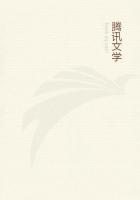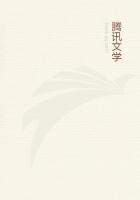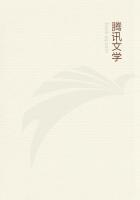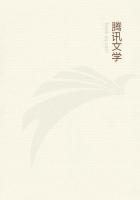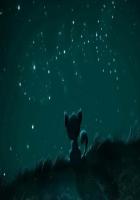This quotation from the journal gives us our first intimation that any Indians accompanied Big White to the United States. He appears to have had a small retinue of followers men, women, and children--with him.
Below the mouth of the Platte, September 12, Lewis and Clark met Gravelines, the interpreter who was sent to Washington from Fort Mandan, in 1805, with despatches, natural history specimens, and a Ricara chief. The chief had unfortunately died in Washington, and Gravelines was now on his way to the Ricaras with a speech from President Jefferson and the presents that had been given to the chief.
He also had instructions to teach the Ricaras in agriculture.
It is interesting to note how that the explorers, now tolerably well acquainted with the Indian character since their long experience with the red men, had adopted a very different bearing from that which they had when coming up the river, in 1805.
Here is an extract from their journal, September 14:--"We resumed our journey. This being a part of the river to which the Kansas resort, in order to rob the boats of traders, we held ourselves in readiness to fire upon any Indians who should offer us the slightest indignity; as we no longer needed their friendship, and found that a tone of firmness and decision is the best possible method of making proper impressions on these freebooters. However, we did not encounter any of them; but just below the old Kansas village met three trading-boats from St. Louis, on their way to the Yanktons and Mahas."
Thirty miles below the island of Little Osage village, the party met Captain McClellan, formerly of the United States army.
He informed Captain Lewis that the party had been given up for lost, people generally believing that they would never again be heard from; but, according to the journal of one of the party, "The President of the U. States yet had hopes of us."
The last news received in "the U. States" from the explorers was that sent from Fort Mandan, by Gravelines, in 1805.
Scarcity of provisions once more disturbed the party, so that, on the eighteenth of September, the journal sets forth the fact that game was very scarce and nothing was seen by the hunters but a bear and three turkeys, which they were unable to reach.
The men, however, were perfectly satisfied, although they were allowed only one biscuit per day. An abundance of pawpaws growing along the banks sufficed as nutritious food.
The pawpaw is native to many of the Western States of the Republic. It is a fruit three or four inches long, growing on a small tree, or bush. The fruit is sweet and juicy and has several bean-shaped seeds embedded in the pulp.
The voyagers now began to see signs of civilization on the banks of the river. Near the mouth of the Gasconade, above St. Louis, they beheld cows grazing in the meadows. The journal says:
"The whole party almost involuntarily raised a shout of joy at seeing this image of civilization and domestic life."
Men who have been wandering in pathless wildernesses, remote from man, for more than two years, might well be moved by the sights of a homelike farm and a settled life.
Soon after this the party reached the little French village of La Charette which they saluted with four guns and three hearty cheers. Then, according to the journal, they landed and were warmly received by the people, who had long since abandoned all hope of ever seeing these far-voyaging adventurers return.
Here are the last entries in the journal that has been our guide so long across the continent and back again to the haunts of men:--"Sunday, September 21st, we proceeded; and as several settlements have been made during our absence, we were refreshed with the sight of men and cattle along the banks.
We also passed twelve canoes of Kickapoo Indians, going on a hunting-excursion. At length, after coming forty-eight miles, we saluted, with heartfelt satisfaction, the village of St. Charles, and on landing were treated with the greatest hospitality and kindness by all the inhabitants of that place.
Their civility detained us till ten o'clock the next morning, "September 22d, when the rain having ceased, we set out for Coldwater Creek, about three miles from the mouth of the Missouri, where we found a cantonment of troops of the United States, with whom we passed the day; and then, "September 23d, descended to the Mississippi, and round to St. Louis, where we arrived at twelve o'clock; and having fired a salute, went on shore and received the heartiest and most hospitable welcome from the whole village."
The two captains were very busily employed, as soon as they arrived in St. Louis, with writing letters to their friends and to the officers of the government who were concerned to know of their safe return to civilization. Captain Lewis' letter to the President of the United States, announcing his arrival, was dated Sept. 23, 1806.
President Jefferson's reply was dated October 20 of that year.
In his letter the President expressed his "unspeakable joy" at the safe return of the expedition. He said that the unknown scenes in which they had been engaged and the length of time during which no tidings had been received from them "had begun to be felt awfully."
It may seem strange to modern readers familiar with the means for rapid travel and communication that no news from the explorers, later than that which they sent from the Mandan country, was received in the United States until their return, two years and four months later.
But mail facilities were very scanty in those far-off days, even in the settled portions of the Mississippi Valley, and few traders had then penetrated to those portions of the Lower Missouri that had just been travelled by Lewis and Clark. As we have seen, white men were regarded with awe and curiosity by the natives of the regions which the explorers traversed in their long absence.

